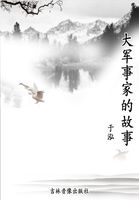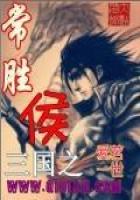Jameson would not have listened to me--he would have been intent upon repeating history, according to precedent. Americans are not acquainted with the British-Boer war of 1881; but its history is interesting, and could have been instructive to Jameson if he had been receptive. I will cull some details of it from trustworthy sources mainly from "Russell's Natal." Mr. Russell is not a Boer, but a Briton. He is inspector of schools, and his history is a text-book whose purpose is the instruction of the Natal English youth.
After the seizure of the Transvaal and the suppression of the Boer government by England in 1877, the Boers fretted for three years, and made several appeals to England for a restoration of their liberties, but without result. Then they gathered themselves together in a great mass-meeting at Krugersdorp, talked their troubles over, and resolved to fight for their deliverance from the British yoke. (Krugersdorp--the place where the Boers interrupted the Jameson raid.) The little handful of farmers rose against the strongest empire in the world. They proclaimed martial law and the re-establishment of their Republic. They organized their forces and sent them forward to intercept the British battalions.
This, although Sir Garnet Wolseley had but lately made proclamation that "so long as the sun shone in the heavens," the Transvaal would be and remain English territory. And also in spite of the fact that the commander of the 94th regiment--already on the march to suppress this rebellion--had been heard to say that "the Boers would turn tail at the first beat of the big drum." --["South Africa As It Is," by F. Reginald Statham, page 82. London: T. Fisher Unwin, 1897.]
Four days after the flag-raising, the Boer force which had been sent forward to forbid the invasion of the English troops met them at Bronkhorst Spruit--246 men of the 94th regiment, in command of a colonel, the big drum beating, the band playing--and the first battle was fought.
It lasted ten minutes. Result:
British loss, more than 150 officers and men, out of the 246.
Surrender of the remnant.
Boer loss--if any--not stated.
They are fine marksmen, the Boers. From the cradle up, they live on horseback and hunt wild animals with the rifle. They have a passion for liberty and the Bible, and care for nothing else.
"General Sir George Colley, Lieutenant-Governor and Commander-in-Chief in Natal, felt it his duty to proceed at once to the relief of the loyalists and soldiers beleaguered in the different towns of the Transvaal." He moved out with 1,000 men and some artillery. He found the Boers encamped in a strong and sheltered position on high ground at Laing's Nek--every Boer behind a rock. Early in the morning of the 28th January, 1881, he moved to the attack "with the 58th regiment, commanded by Colonel Deane, a mounted squadron of 70 men, the 60th Rifles, the Naval Brigade with three rocket tubes, and the Artillery with six guns." He shelled the Boers for twenty minutes, then the assault was delivered, the 58th marching up the slope in solid column. The battle was soon finished, with this result, according to Russell--British loss in killed and wounded, 174.
Boer loss, "trifling."
Colonel Deane was killed, and apparently every officer above the grade of lieutenant was killed or wounded, for the 58th retreated to its camp in command of a lieutenant. ("Africa as It Is.")That ended the second battle.
On the 7th of February General Colley discovered that the Boers were flanking his position. The next morning he left his camp at Mount Pleasant and marched out and crossed the Ingogo river with 270 men, started up the Ingogo heights, and there fought a battle which lasted from noon till nightfall. He then retreated, leaving his wounded with his military chaplain, and in recrossing the now swollen river lost some of his men by drowning. That was the third Boer victory. Result, according to Mr. Russell--British loss 150 out of 270 engaged.
Boer loss, 8 killed, 9 wounded--17.
There was a season of quiet, now, but at the end of about three weeks Sir George Colley conceived the idea of climbing, with an infantry and artillery force, the steep and rugged mountain of Amajuba in the night--a bitter hard task, but he accomplished it. On the way he left about 200men to guard a strategic point, and took about 400 up the mountain with him. When the sun rose in the morning, there was an unpleasant surprise for the Boers; yonder were the English troops visible on top of the mountain two or three miles away, and now their own position was at the mercy of the English artillery. The Boer chief resolved to retreat--up that mountain. He asked for volunteers, and got them.
The storming party crossed the swale and began to creep up the steeps, "and from behind rocks and bushes they shot at the soldiers on the skyline as if they were stalking deer," says Mr. Russell. There was "continuous musketry fire, steady and fatal on the one side, wild and ineffectual on the other." The Boers reached the top, and began to put in their ruinous work. Presently the British "broke and fled for their lives down the rugged steep." The Boers had won the battle. Result in killed and wounded, including among the killed the British General:
British loss, 226, out of 400 engaged.
Boer loss, 1 killed, 5 wounded.
That ended the war. England listened to reason, and recognized the Boer Republic--a government which has never been in any really awful danger since, until Jameson started after it with his 500 "raw young fellows."To recapitulate:
The Boer farmers and British soldiers fought 4 battles, and the Boers won them all. Result of the 4, in killed and wounded:
British loss, 700 men.
Boer loss, so far as known, 23 men.
It is interesting, now, to note how loyally Jameson and his several trained British military officers tried to make their battles conform to precedent. Mr. Garrett's account of the Raid is much the best one I have met with, and my impressions of the Raid are drawn from that.














